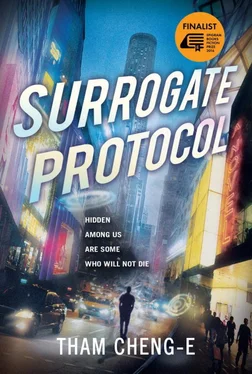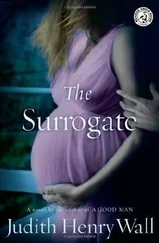“I will buy him then,” said Great Bear, in heavily-accented Mandarin.
“It depends on what you will give for him.”
Great Bear took out the rest of his money while Origen looked on beside him, palpably distressed, though the frigidity of his expression did not reveal it. It was a bag of copper coins and two mercantile banknotes amounting to ten dollars.
The merchant spat, scoffed at the paltry sum in a derisive chuckle. “I’d plump him up for a few more years and sell him as a slave for fifty dollars.”
“He won’t last another week.” Great Bear said.
“That ring in your hand.” The merchant slapped his fan on a palm and pointed with it to Great Bear’s left hand. “It is gold, isn’t it?”
It had once belonged to Samagar, a friend and a great Mongol general. A gift of the highest order. “Gold, it is,” Great Bear answered. “The purest.”
“That makes up the price.” The merchant flaunted more gold through his grin.
To his wife’s horrified gasp Great Bear slid it off his finger and flicked it over. The merchant was quick to snatch it from the air, and in the span of it Great Bear was already walking away with the child on his back. The merchant tried it on, and found that it only fitted the thumb. He laughed—a cackling stutter, “You have such thick fingers!”
A flash of pain sent him reaching for his hand. The ring seemed to have suddenly shrunk, the metal now folding over upon itself, collapsing into a dense nub over the thumb and snapping it clean off—skin, bones and all. The deranged scream gathered a crowd, and the woman looked at her husband with fear in her eyes.
“All matter is but a composition of very small particles,” he said. “Manipulate them and you manipulate a great deal of energy in ways you never imagined.
“Witchcraft, Sayuri,” he assured to an amused twitch of an eyebrow.
/ / /
A trail in the forest took them to a clearing. At a corner there was a humble dwelling; its walls and roof woven of attap palm. To the south they saw the straits, speckled with hundreds of boats with their rolled masts. Great Bear clawed a handful of soil, kneaded it in his fingers and brought it to his nose.
“It is fertile ground.” He lifted his eyes approvingly to the full measure of Origen’s height. “This Harriet will give us life in the years to come.”
Origen bowed. “Thank the Lord.”
By nightfall Origen had left them and returned to the town. Under the cover of darkness and in a freshly-dug pit no less than six feet deep, Great Bear laid down a chest of lead no larger than a jewellery box. In the light of his torch he looked at it for one last time and compacted the earth over it.
Behind him their dwelling glowed in candlelight, and on a straw mat the young boy drowsed, his colour having returned after a meal of roast and warmed milk. The woman, her hair now unbound and flowing in a foreign, scented breeze, came outside and sat down beside Great Bear. “What would you name him?” she asked.
“Aldred,” he answered without delay, looking at the sky.
“After him?”
“After him.”
She nuzzled closer. “Have you ever loved life, Great Bear?”
“Only when I started living it for someone else.” He reached over and took her hand. “And I’m loving it very much right now, Sayuri.”
On their wicker seats they reclined, exhaling, and watched the stars together.
IN 1852 CAPTAIN Henry Keppel recorded in his journal an incident of a young Malayan boy who was attacked by a man-eating tiger and subsequently rescued by the two buffaloes which he was herding. One of the buffaloes pursued the tiger into the jungle while the other kept watch over the wounded boy, though the journal entry did not mention if the boy lived.
In this story, I made sure he did.
Many of the insights that composed the historical scenes were inspired by various exemplary sources, without which the vagaries of an intriguing past would have slipped away unnoticed. I thank Iain Manley and Michael Wise for their rare and invaluable compilations. Tan Kok Yang for his work on Queenstown. Loh Kah Seng for his vivid chronicle of the Bukit Ho Swee fire. Edwin A. Brown and Mary Brown for their meticulous documentation of the Sepoy Mutiny. The National Library Board and Singapore Press Holdings for their archives and resources.
An English folk song appears in Chapter 40, titled The Poor Murdered Woman by Leslie Nelson-Burns. As you might have guessed, the recurring lyrics that appear throughout this novel belonged to Tea for Two by Vincent Youmans and Irving Caesar.
Heartfelt thanks to my only brother, who bore the agony of reading my formative works which I still keep hidden. His little murmurs of encouragement held such strength. Edmund Wee and his team at Epigram Books for believing enough in the work to put it into print. Jason Erik Lundberg and JY Yang, my editors, who have been instrumental in polishing the work to a high gloss. Above all, my utmost gratitude to my wife and first-reader, Sandra, who saw through with me every step in the production of this novel.

Tham Cheng-E is an architect who also writes about the special needs community for the online magazine Special Seeds , and maintains a family blog on parenting and Down syndrome. Surrogate Protocol is his first novel.
WINNER OF THE 2016 EPIGRAM BOOKS FICTION PRIZE

The Gatekeeper
NURALIAH NORASID
Young medusa Ria turns an entire village of innocents to stone with her gaze. She flees with her older sister for the underground city of Nelroote, where Manticura’s quasi-fantastical sapient races—Scereans, Tuyuns, Feleenese, Cayanese—live on the margins. There she takes up her role as gatekeeper, protecting the city from threats, Human or otherwise.
Decades later, Manticura is now a modern urban city-state, and Eedric Shuen is bored with his privileged life. He stumbles upon the entrance to Nelroote and encounters Ria, who has spent nearly half a century in solitude. As their friendship blossoms, external whispers of the medusa sisters threaten to spark a chain of events that will throw Nelroote and its inhabitants into imminent danger.
Available online at www.epigrambooks.sg
FINALIST FOR THE 2016 EPIGRAM BOOKS FICTION PRIZE

Fox Fire Girl
O THIAM CHIN
Derrick can’t believe his luck when he rekindles a romance with ex-girlfriend Yifan. But Yifan remains aloof and distant. She confides to Derrick that in her hometown of Ipoh, she discovered that she is actually a fox spirit with mystical powers.
But Derrick isn’t the only person who has fallen under Yifan’s spell. Unbeknownst to him, Tien Chen, a man with an unhealthy obsession with fire, has also been dating her. When Tien Chen eventually confronts Yifan about her infidelity, she tells him a story about her childhood in Ipoh to explain her actions. But is Yifan really the person she claims to be?
Available online at www.epigrambooks.sg
FINALIST FOR THE 2016 EPIGRAM BOOKS FICTION PRIZE
Читать дальше















